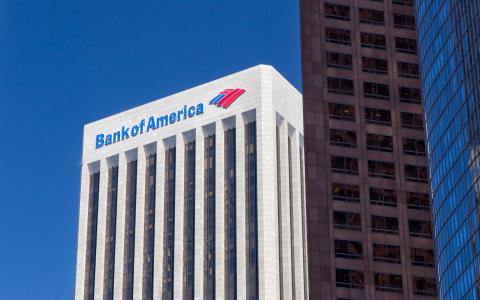
(Reuters) Bank of America Corp beat Wall Street estimates for quarterly profit as it earned more in advisory fees and grew its loan book, easing concerns that lower interest rates would crimp growth at the second-largest U.S. bank.
The lender’s shares rose 1.6% in premarket trading as consumer banking - its biggest business - showed strength in the face of uncertainties in global financial markets and reinforced optimism about the financial health of individuals.
“In a moderately growing economy, we focused on driving those things that are controllable,” Chief Executive Brian Moynihan said in a statement.
Since 2015, Wall Street’s marquee banks have benefited from higher interest rates, as they could afford to charge more interest on loans, without having to significantly raise payouts on deposits. However, this year, markets have been buffeted by lower interest rates as macroeconomic conditions have worsened.
Bank of America is the most vulnerable among the big U.S. banks to fluctuations in interest rates because of its large deposit stock and rate-sensitive mortgage securities. The Federal Reserve has already cut rates twice this quarter.
BofA took a small hit on its spread and reported a 4 basis-point decrease in its interest margin to 2.41% for the third quarter. But a 5% growth in overall loans helped it overcome the impact of lower rates.
Along with that, strong performance in investment banking and equities trading boosted total revenue past Wall Street expectations.
Revenue from investment banking fees jumped 40%, while revenue from consumer banking - its biggest business - rose 3% to $9.7 billion.
The bank’s equity trading business outperformed its peers with a 13% jump.
The bank’s net interest income also came in higher at $12.34 billion, accounting for more than half of its total revenue.
Net income applicable to common shareholders fell 21% to $5.27 billion, or 56 cents per share, hit by a $2 billion impairment charge. Excluding the charge, the bank earned 75 cents per share.
Revenue, net of interest expense, rose slightly to $22.96 billion.
Analysts were expecting a profit of 51 cents per share and revenue of $22.79 billion, according to IBES data from Refinitiv.



